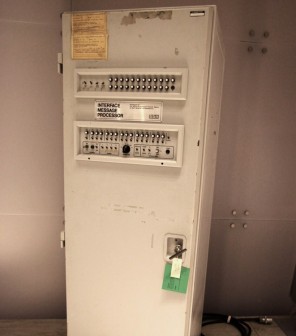Does Our Hyper-Connected World Make People Socially Inept?
 If someone would have given me an accurate description of today’s communication and information world back in, let us say, 1971, I would have told them that they should stop believing in science fiction novels. Back then there were no cell phones or the internet, although both communication technologies were in the pipeline in various degrees of research.
If someone would have given me an accurate description of today’s communication and information world back in, let us say, 1971, I would have told them that they should stop believing in science fiction novels. Back then there were no cell phones or the internet, although both communication technologies were in the pipeline in various degrees of research.
It would not have been reasonable to forecast our current communication landscape in 1971. Access to information was also limited. The best sources were countless daily newspapers and magazines. The French intelligentsia bought Le Monde and some quality magazines; others would get their news from thriving regional papers. France had only three TV channels which would only broadcast from 7:00 pm to 10:00 pm, but quality news still belonged to a handful of government-financed radio broadcasters. Back then, if you wanted to make plans to get together with your friends, you would pick up the phone to make arrangements, or go directly to their regular cafes, knowing full well that any conversation from the previous day could get re-started.
The Cell Phone
Dr Martin Cooper, credited to be the inventor of the cell phone, made the first call on a portable cell phone in April 1973; however, it took another 10 years for the slow-moving Federal Communications Commission (FCC) to authorize commercial cellular service in the United States. The first device was a two-pound apparatus that would make anyone today burst out laughing. By 1987, cellular phone subscribers in the US exceeded one million.
The Internet
The Advanced Research Project Agency Network (ARAPANET), brought on line in 1969, was the first version of the Internet. The term Internet itself was only officially introduced in 1974. At first, the early network connected only four computers. The original version of the Internet was not intended for the public but for use by government contractors and universities on secret projects. Back then, the Internet was an extremely complex system that only scientists, engineers and highly skilled computer specialists could operate.
By 1984, a domain name system and a common computer language were created, allowing all computers on the network to communicate with each other. For seven more years, however, the Internet remained extremely challenging for the majority of people. The first friendly easy-to-use Internet interface was created at the University of Minnesota in 1991.
The two key components of the communication and information revolution are the cell phone and the Internet. They are the tools that keep us connected globally around the clock. They have dramatically change the way we communicate for business or personal reasons. They have also revolutionized the way we access news sources and democratized the entire knowledge of human kind. Anything about everything may be found at the click of a mouse or directly on our smart phone devices.
The Good Old Days of Real Socialization
Needless to say, before the Internet and the cell phone, there were no Facebooks friends or Twitter followers. Instead There were real friends or familiar faces who were game for lively conversations on many topics. This old-fashioned mode of communication had the merit of being real, in the flesh, as opposed to the one on so-called social network which are too often a way for people to get more isolated. There is, in fact, another side to this extraordinary progress that makes people of my generation somewhat nostalgic for the good old days.
Social Isolation
We have all witnessed this disturbing phenomenon, but perhaps it is more easily noticed by people like myself who belong to the transitional generation: it happens in classrooms, in boardrooms, and even during family dinners: people in their teens or early twenties, who grew up with cell phones permanently attached to their bodies, start to text, e-mail, or surf the web. It is as if the virtual world at their finger tip matters more to them than the real world of actual personal interactions. They are on Facebook, Twitter, and countless other social networks, yet when it comes to real face-to-face social contact with human beings, they are shy, clumsy, inept, as if trapped in their ever-shrinking communication devices. Now and then, it is a good idea to switch off your computer, stop texting, unplug yourself altogether from this brave new world of the technology revolution, seek real human contact in person, and learn the art of conversation again with your friends and family.
Related Articles

















11 Responses to Does Our Hyper-Connected World Make People Socially Inept?
You must be logged in to post a comment Login